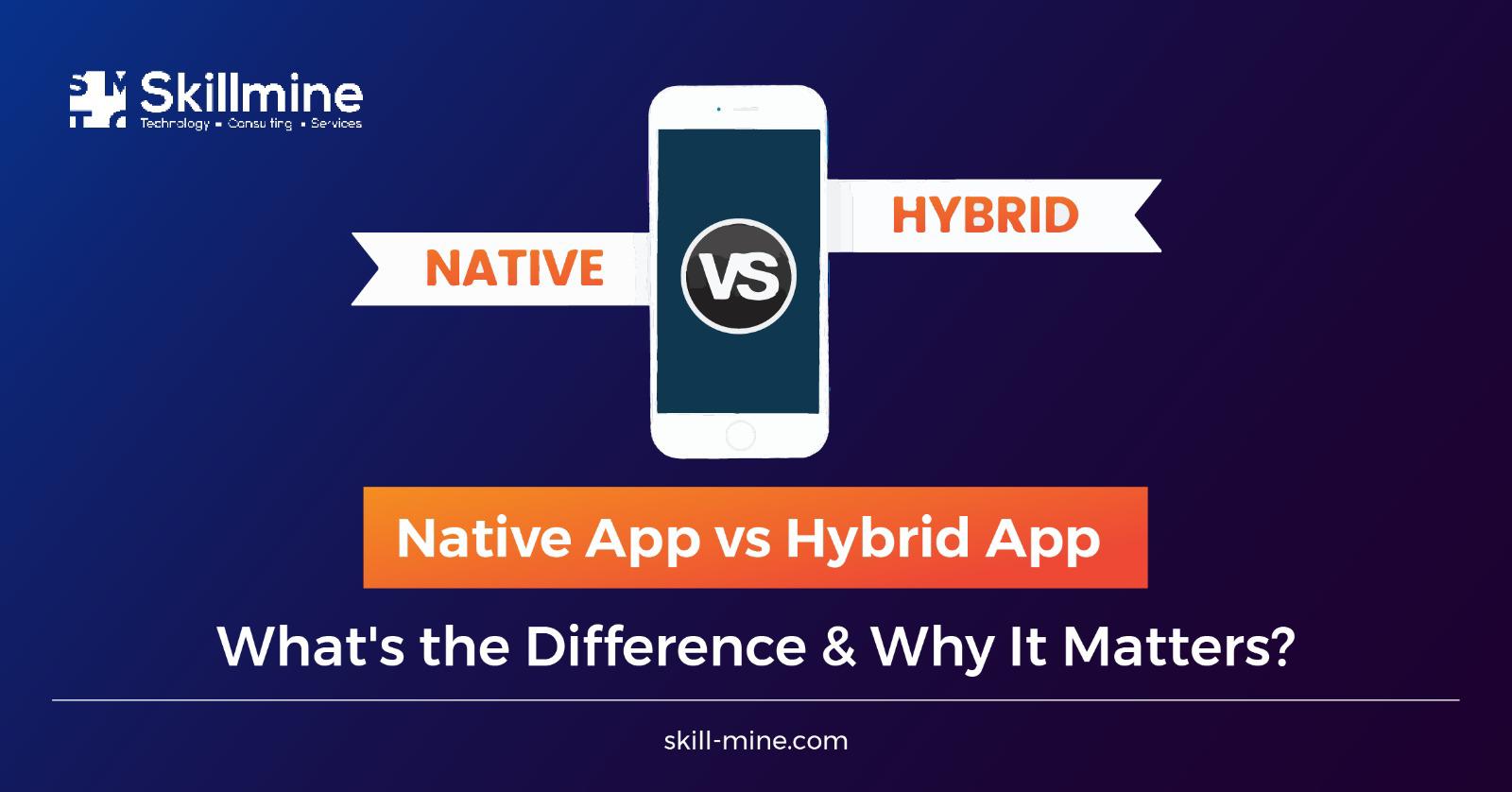As mobile usage continues to skyrocket, businesses are constantly looking for ways to capitalize on the trend by creating apps that deliver better user experiences. One question that often arises during this process is whether to build a native app or a hybrid app. While both types of apps have their advantages and disadvantages, the choice between them can significantly impact the user experience, development time, and cost.
Native Apps
Native apps are developed specifically for a particular platform, such as iOS or Android. They’re created using the platform’s specific programming language and tools, like Swift for iOS and Java for Android. Native apps provide the highest performance and functionality for a particular platform, leveraging the device’s hardware and software to deliver fast, responsive, and fluid user experiences.
Examples of popular native apps include Instagram, Google Maps, and Uber. These apps provide smooth and seamless user experiences, with features and functionality optimized for each platform’s unique design and user interface. For instance, the Instagram app for iOS has a different user interface than the Android version, with different navigation, menu icons, and gestures.
Advantages of Native Apps:
Optimal Performance: Native apps harness the platform’s full capabilities, delivering superior performance and responsiveness compared to hybrid alternatives.
Full Native Feature Access: Developers enjoy unrestricted access to all device-specific features, enabling the creation of feature-rich, high-performance applications.
Superior User Experience: Native apps offer a seamless and intuitive user experience tailored precisely to the platform’s design guidelines and user expectations.
Challenges of Native Apps:
Development Time and Expenses: Crafting distinct apps for various platforms demands additional time, resources, and expertise, potentially escalating development costs.
Maintenance Complexity: Managing multiple codebases for diverse platforms poses complexities and time challenges, necessitating dedicated teams for each platform’s upkeep.
Hybrid Apps
Hybrid apps are web applications that are wrapped in a native app container. They’re built using web technologies like HTML, CSS, and JavaScript and then packaged as native apps for different platforms. This allows developers to create a single codebase that can be used for multiple platforms, reducing development time and costs.
Examples of popular hybrid apps include Twitter and Gmail. These apps provide a consistent user experience across different platforms, with a shared codebase that allows for more accessible updates and maintenance.
Advantages of Hybrid Apps:
Cost-Efficiency: Constructing a singular hybrid app compatible with various platforms (iOS, Android, etc.) proves more economical than developing distinct native apps for each platform.
Accelerated Development: Leveraging web technologies enables swift development cycles, as developers can write code once and deploy it universally.
Streamlined Maintenance: Universal updates and modifications streamline maintenance efforts across platforms, minimizing time and resources.
Challenges of Hybrid Apps:
Performance Concerns: Hybrid apps may encounter performance issues compared to native apps due to reliance on web technologies and the wrapper facilitating native interactions.
Restricted Native Features: While hybrid apps can access some native features through plugins, they may lack full access to device-specific capabilities, resulting in functional limitations.
Let’s understand the difference between native and hybrid apps.
Native App | Hybrid App |
Developed for a specific platform (iOS or Android) using platform-specific programming languages (Swift or Objective-C for iOS, Java or Kotlin for Android) | Developed using web technologies like HTML, CSS, and JavaScript |
Provides better performance and faster load times because it is optimized for the specific platform | Slower performance and longer load times because it is running in a web view |
Can access all the features and capabilities of the device, such as camera, contacts, and GPS | Limited access to device features and capabilities |
Requires separate development for each platform, which can be time-consuming and expensive | Can be developed once and deployed on multiple platforms, reducing development time and cost |
Provides a better user experience because it is designed specifically for the platform | User experience may be compromised because the app is designed to work on multiple platforms |
More expensive to develop but can deliver higher returns on investment due to better performance and user experience | Less expensive to develop but may not deliver the same level of performance and user experience as native apps |
So, which one should you choose?
The choice between native and hybrid apps depends on several factors, including the specific needs of your business, budget, and target audience. If you need high performance, access to device hardware, and superior security, native apps are the way to go. Hybrid apps are the better option if you want a cross-platform app that’s more affordable and easier to maintain.
One example of a business that opted for a native app is Snapchat, an American multi-media instant messaging app. The app provides a highly customized and immersive experience for its users, with a unique user interface, camera functionality, and optimised filters for each platform.
On the other hand, the popular messaging app WhatsApp chose to go with a hybrid approach, providing a consistent user experience across different platforms while still offering advanced functionality like end-to-end encryption and message backups.
Final thoughts
the choice between native and hybrid apps ultimately comes down to your business needs and priorities. By understanding the differences between the two types of apps, you can make an informed decision that will help you deliver the best possible experience for your users while achieving your business goals. Choose Skillmine’s app development services to help you create the app that suits your business requirements.
Looking for expert technology consulting services? Contact us today.





